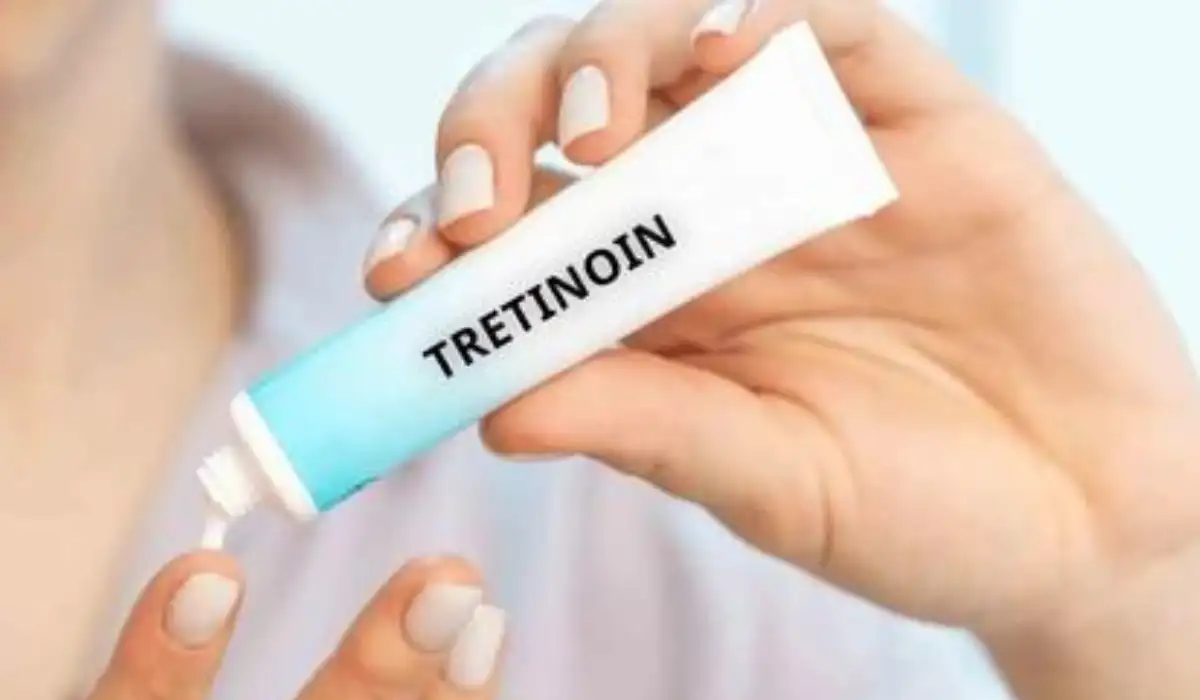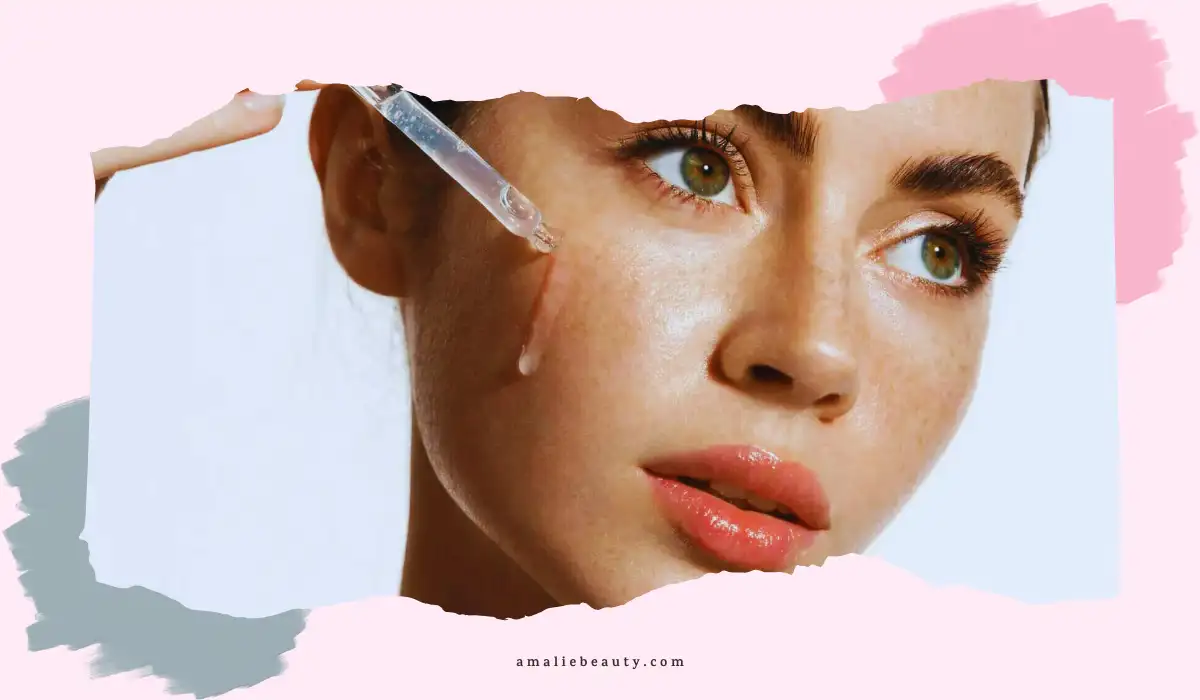The two cornerstones of the skincare world are tretinoin and retinol. All of these compounds belong to the retinoid family and have become popular due to their versatility in treating various skin issues.
However, mastering the realm of tretinoin and retinol needs a deep insight into their disparities as well as advantages and side effects.
This article seeks to untangle the tretinoin and retinol conundrum allowing you to choose between the two based on your skin care requirements.
What Is Tretinoin?

Retinoid-based on vitamin A tretinoin has been known for its powerful anti-aging effects.
Tretinoin commonly available under such brand names as Retin- A works by accelerating the process of skin cell turnover.
This process eliminates old damaged cells while promoting the growth of new healthy ones thus improving skin texture, reducing fine lines, and increasing collagen production.
Benefits of Tretinoin
➡️ Wrinkle Reduction
Tretinoin stands out in reducing the visibility of fine lines and wrinkles which is why it is a popular option for people who want to achieve great anti-aging effects.
Frequent application of tretinoin is associated with a clear improvement in deep-set wrinkles, especially around the eyes and mouth.
➡️ Acne Treatment
Besides its anti-aging capabilities, tretinoin is a primary acne treatment. It targets both the aging problem and acne concerns by cleaning pores and preventing the creation of new lesions.
Dermatologists also prescribe tretinoin for patients with persistent acne demonstrating the drug’s effectiveness in treating various skin problems.
➡️ Collagen Stimulation
The ability of tretinoin to increase collagen production makes the skin firmer and more elastic further enhancing its attractiveness for individuals addressing aging signs.
With age, collagen, an important protein in the structure of the skin, diminishes and tretinoin’s effect on its production highlights its importance in anti-aging treatments.
Side Effects of Tretinoin
➡️ Irritation
Side effects of tretinoin can include redness, peeling, and irritation in the early weeks of use.
Dermatologists usually start with a lower concentration and increase it as the skin learns to tolerate the product.
By using a moisturizer along with tretinoin these initial adverse effects can be alleviated making the transition smoother.
➡️ Sun Sensitivity
Sun sensitivity is increased by tretinoin and therefore careful use of sunscreen is mandatory to avoid sunburn and other long-term damaging effects.
The use of a broad-spectrum sunscreen with high SPF while using tretinoin must be incorporated into the daily skincare routine to provide sufficient protection against harmful UV rays.
What Is Retinol?
Retinol, an OTC vitamin A derivative that is less potent than other forms of vitamin A, has been widely used in different skincare products.
Although it is less powerful than Tretinoin Retinol still has convincing advantages for general skin health.
Benefits of Retinol
➡️ Gentle anti-aging
Retinol offers a gentle approach to anti-aging and it is good for people with skin sensitivities or those who prefer milder skincare.
The mild nature of this product allows for continued use over time gradually enhancing the skin’s texture and color without risking excessive irritation.
➡️ Improves Skin Texture
Just like tretinoin retinol stimulates cell renewal that leads to more refined and delicate skin after some time.
The gentle exfoliation that retinol encourages helps to reduce the look of rough patches and uneven skin texture leaving a smoother complexion.
➡️ Accessible Without Prescription
On the other hand, retinol is sold over the counter making it a convenient alternative for persons who do not have a prescription.
This availability allows more people to use retinol in their skincare regimes creating a wider user base for anti-aging practices.
Side Effects of Retinol
➡️ Mild Irritation
Although not as harsh as tretinoin retinol can also lead to mild irritation redness and peeling especially at the beginning of its use.
Slowly incorporating retinol and using it in conjunction with hydration products can reduce these side effects while making the transition to the ingredient more comfortable.
➡️ Sun Sensitivity
As is the case with tretinoin retinol increases sensitivity to sunlight and therefore requires regular use of sunscreen for effective protection.
Users of retinol should also make sure they use sunscreen to protect their skin from UV rays continuing the benefits of retinol while avoiding potential damage.
Choosing the Right Fit
Whether to use tretinoin or retinol depends on the skin issues that a person wants to address their tolerance level and what effects they need.
People who would wish for a more aggressive approach to anti-aging and acne treatment can use tretinoin with the help of a dermatologist.
Alternatively, people with sensitive skin or those who like a slow and steady improvement may consider retinol to be a viable and affordable choice.
However, it is important to mention that both tretinoin and retinol have solid grounds in terms of improving the overall condition of the skin and addressing a range of issues.
For one to decide appropriately it is essential that they use the products with care, adhere to instructions given, and consult a skin specialist when necessary.
Conclusion
While discussing tretinoin vs. retinol, they have proven to be effective in promoting proper skin health as well as addressing different issues.
Whether one chooses the prescription strength of tretinoin over-the-counter gentleness of retinol an informed decision along with proper usage can help promote healthier and more radiant skin.
Knowing the subtle differences between these retinoids you can start on your skincare journey when it is most convenient for you and create a unique program that will ensure the health and vitality of your skin for years to come.
References
- Kong R, et al. (2016). A comparative study of the effects of retinol and retinoic acid on histological, molecular, and clinical properties of human skin.
https://pubmed.ncbi.nlm.nih.gov/26578346/ - Yoham AL, et al. (2020). Tretinoin.
https://www.ncbi.nlm.nih.gov/books/NBK557478/

